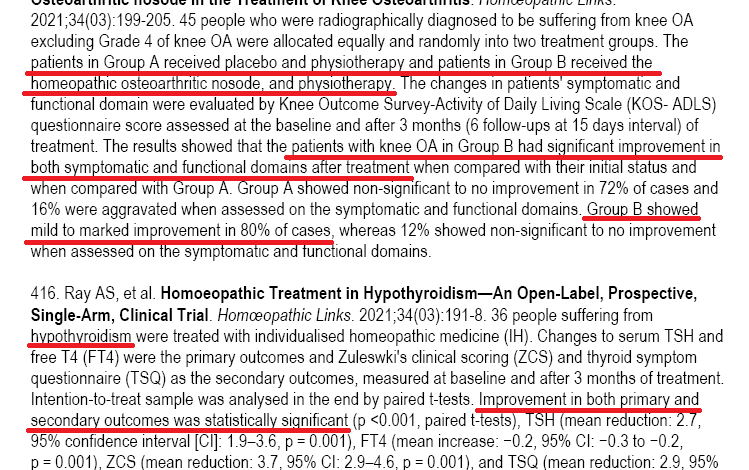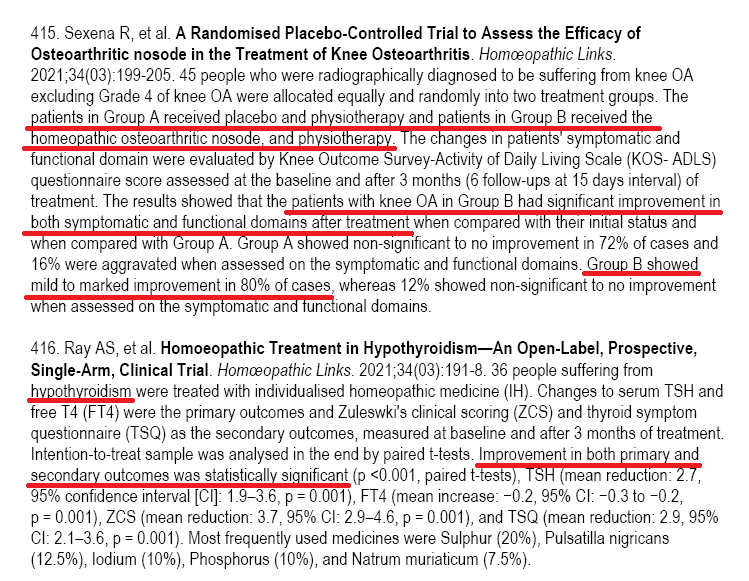
Debunking Myths Around Homeopathy
Debunking myths around homeopathy is crucial for making informed healthcare decisions. For years, homeopathy has been surrounded by a cloud of misinformation, with claims often exceeding scientific evidence. This post dives deep into the common misconceptions, examining the lack of rigorous scientific backing, the concept of infinite dilution, and the often-overlooked role of the placebo effect. We’ll explore why homeopathy, despite its popularity, doesn’t align with the principles of evidence-based medicine and what potential risks might be involved in relying on it for serious health concerns.
We’ll tackle the core arguments supporting homeopathy, examining them through the lens of scientific rigor and critical thinking. We’ll dissect the “law of infinitesimals,” explore the chemical composition of highly diluted remedies, and compare the evidence supporting homeopathy to that supporting conventional medicine. Get ready to separate fact from fiction as we unravel the complexities of this controversial practice.
The Placebo Effect in Homeopathy
Homeopathy, despite lacking scientific evidence for its efficacy beyond the placebo effect, often relies on anecdotal reports to bolster its claims. Understanding the placebo effect, its power, and its limitations is crucial to evaluating homeopathy’s true impact. It’s important to differentiate between the genuine therapeutic effects of a treatment and the psychological impact of believing a treatment will work.The placebo effect is a well-documented phenomenon where a patient experiences improvement in symptoms simply because they believe they are receiving an effective treatment, regardless of whether the treatment itself has any inherent medicinal properties.
This effect can be powerful, leading to real physiological changes in the body, such as reduced pain or improved mood. However, it’s critical to remember that this improvement is not due to the specific properties of the treatment, but rather the patient’s expectation of improvement. Actual therapeutic effects, on the other hand, stem from the pharmacological or physiological mechanisms of the treatment itself.
A genuine drug interacts with the body’s systems to produce a specific effect, whereas the placebo effect is entirely psychological.
So, I’ve been digging into debunking those persistent homeopathy myths – you know, the ones that claim it can cure anything? It’s frustrating because relying on such unsubstantiated treatments can delay seeking proper medical attention for serious conditions, like a stroke. Understanding the risk factors that make stroke more dangerous is crucial, and that’s why separating fact from fiction in healthcare is so important.
Ultimately, debunking homeopathy myths is about promoting evidence-based medicine and making informed choices about your health.
Studies Isolating the Placebo Effect in Homeopathic Treatments
Numerous studies have investigated the effectiveness of homeopathic treatments, often comparing them to placebos. These studies frequently demonstrate that any positive effects observed are no greater than those seen in the placebo group. For example, a meta-analysis published in
- The Lancet* reviewed numerous trials of homeopathy and found no evidence of clinical effectiveness beyond that of placebo for any health condition. Another significant study published in the
- Journal of the American Medical Association* (JAMA) reached similar conclusions, highlighting the inability of homeopathy to demonstrate efficacy above placebo. These studies, while not directly measuring the placebo effect in isolation, strongly suggest that the observed benefits in homeopathic treatments are attributable to the placebo effect. The rigorous methodology employed in these large-scale meta-analyses strengthens the conclusion that homeopathy does not provide clinically significant benefits beyond placebo.
So, I’ve been digging into debunking myths around homeopathy lately, and it’s fascinating how many misconceptions are out there. It really highlights the importance of evidence-based medicine, especially when you consider something like Monali Thakur’s recent hospitalization, as reported in this article: monali thakur hospitalised after struggling to breathe how to prevent respiratory diseases. Her experience underscores the need for reliable treatments and preventative measures for respiratory illnesses, a stark contrast to the unsubstantiated claims often associated with homeopathy.
Limitations of Anecdotal Evidence in Supporting Homeopathy, Debunking myths around homeopathy
Anecdotal evidence, which consists of personal stories and testimonials, is inherently unreliable as a basis for evaluating medical treatments. While individual experiences can be compelling, they lack the scientific rigor necessary to draw meaningful conclusions. Anecdotal evidence is susceptible to bias, recall errors, and the influence of confounding factors. A single positive experience does not negate the results of large-scale, controlled studies that show no significant difference between homeopathy and placebo.
Furthermore, spontaneous remission of symptoms, which is common for many conditions, can be mistakenly attributed to the homeopathic treatment. The lack of control groups and rigorous methodology in anecdotal reports renders them unsuitable for supporting claims of efficacy.
Comparison of Placebo Effects in Homeopathy and Conventional Medicine
The placebo effect operates similarly in both homeopathy and conventional medicine. However, the crucial difference lies in the context. In conventional medicine, the placebo effect is often a supplementary factor alongside the actual therapeutic effects of a medication or treatment. While acknowledging the placebo effect’s influence, conventional medicine focuses on treatments with demonstrated efficacy through rigorous scientific research.
In contrast, homeopathy relies almost entirely on the placebo effect, as its preparations are so highly diluted that they are unlikely to contain any active molecules of the original substance. The ethical implications of this are significant, as patients may be misled into believing they are receiving an effective treatment when, in reality, any benefit is solely due to the placebo effect.
This underscores the importance of evidence-based medicine and the ethical responsibility of healthcare providers to inform patients honestly about the limitations of treatments.
Dilution and the “Law of Infinitesimals”
Homeopathy rests on a central tenet: the “Law of Infinitesimals,” which proposes that diluting a substance beyond the point where no original molecules remain actuallyincreases* its potency. This concept is fundamentally at odds with basic chemistry and pharmacology. Let’s examine why this claim is scientifically untenable.The principle of infinite dilution involves serially diluting a substance in water or alcohol, often to an extent where statistically, not a single molecule of the original substance remains in the final product.
Homeopaths believe that this process somehow “imprints” the original substance’s properties onto the water or alcohol, creating a remedy with therapeutic effects. This belief is not supported by any credible scientific evidence.
Scientific Impossibility of Retaining Properties After Extreme Dilution
The idea that a substance can retain its medicinal properties after being diluted to such an extent that it is no longer physically present defies the laws of chemistry and physics. The effects of a medication are directly related to its chemical composition and concentration. If a substance is diluted to the point where there are no molecules of the original substance left, there is simply nothing left to have a pharmacological effect.
The extremely diluted solution is chemically indistinguishable from the solvent (water or alcohol) alone. Any perceived effect is therefore not attributable to the original substance.
Examples of Scientific Studies Investigating Homeopathic Remedy Composition
Numerous studies have analyzed the chemical composition of highly diluted homeopathic remedies. These studies consistently demonstrate the absence of the original substance. For example, a study published inThe Lancet* analyzed various homeopathic preparations and found no detectable molecules of the original substance after significant dilutions. Another study, using highly sensitive analytical techniques, confirmed these findings, showing that homeopathic remedies are essentially just water or alcohol.
These consistent findings across multiple independent studies strongly refute the claims made by homeopaths regarding the “memory of water” or similar phenomena.
Dilution Levels in Homeopathic Preparations
The following table illustrates the extreme dilutions used in homeopathic preparations. The notation “X” represents a 1:10 dilution (one part substance to nine parts solvent), while “C” represents a 1:100 dilution. Each subsequent dilution further reduces the concentration of the original substance.
| Homeopathic Potency | Dilution Factor |
|---|---|
| 6X | 10-6 |
| 12C | 10-24 |
| 30C | 10-60 |
| 200C | 10-400 |
Note that a 30C dilution, a commonly used potency, means that the original substance has been diluted to a level where it’s statistically impossible for even a single molecule to remain. The higher the potency (e.g., 200C), the more improbable it is that any trace of the original substance is present. These dilutions are far beyond what is considered scientifically plausible for any pharmacological activity.
Lack of Rigorous Scientific Evidence
Homeopathy’s lack of robust scientific backing is a central criticism. While proponents cite anecdotal evidence and personal experiences, the scientific community demands rigorous testing and replication before accepting a treatment’s efficacy. The fundamental issue lies in the methodology employed in many homeopathy studies, often lacking the necessary controls and statistical power to draw meaningful conclusions. This contrasts sharply with the high standards of evidence required for conventional medicine.Many studies supporting homeopathy suffer from significant methodological weaknesses.
These flaws frequently compromise the reliability and validity of the results, making it difficult to determine whether any observed effects are due to the homeopathic treatment itself, the placebo effect, or other confounding factors. This lack of rigor makes it impossible to confidently distinguish between genuine therapeutic effects and chance occurrences.
Methodological Weaknesses in Homeopathy Studies
A common problem is the use of small sample sizes, which reduces the statistical power to detect a true treatment effect, even if one exists. Many studies also lack appropriate control groups, making it impossible to rule out the influence of the placebo effect or spontaneous remission. Furthermore, the subjective nature of many homeopathic outcomes makes it difficult to objectively assess the effectiveness of treatment.
Blinding, crucial for minimizing bias, is often poorly implemented or absent entirely. Finally, many studies lack adequate reporting of methodology, making independent verification and replication challenging. For example, a study might not clearly describe the preparation of the homeopathic remedy or the methods used to assess the outcome, raising concerns about the reproducibility of the findings.
Comparison of Evidence Quality
The quality of evidence supporting homeopathy is significantly lower than that supporting conventional medicine. Conventional medicine relies on large, randomized, placebo-controlled clinical trials (RCTs) to establish efficacy and safety. These trials employ rigorous methodologies, including blinding, randomization, and appropriate sample sizes, to minimize bias and increase the reliability of the results. In contrast, many homeopathy studies are small, poorly designed, and lack adequate controls, making it difficult to draw reliable conclusions about their effectiveness.
Systematic reviews and meta-analyses of homeopathy trials consistently find little or no evidence of efficacy beyond the placebo effect for most conditions. Conversely, conventional medicine boasts a vast body of evidence from well-conducted studies demonstrating the effectiveness of treatments for a wide range of conditions.
Examples of Systematic Reviews and Meta-analyses
Numerous systematic reviews and meta-analyses have evaluated the efficacy of homeopathic treatments. A meta-analysis published inThe Lancet* in 2005, for example, concluded that there was no reliable evidence to support the effectiveness of homeopathy for any health condition. Similar conclusions have been reached by other major systematic reviews conducted by organizations like the National Center for Complementary and Integrative Health (NCCIH) in the United States.
These reviews consistently highlight the methodological flaws in many homeopathy studies and the lack of evidence to support claims of clinical efficacy.
Hypothetical Rigorous Study of a Homeopathic Remedy
Let’s consider a hypothetical study to rigorously test the effectiveness of
- Arsenicum album* for the treatment of diarrhea. The study would be a randomized, double-blind, placebo-controlled trial involving a large sample size (e.g., 500 participants) with patients randomly assigned to either the
- Arsenicum album* group or a placebo group. Both groups would receive identical-looking pills, but only the
- Arsenicum album* group would receive the homeopathic remedy prepared according to strict, documented protocols. Outcome measures would include frequency of bowel movements, stool consistency, duration of diarrhea, and patient-reported symptom severity, assessed using validated scales. Blinding would be maintained throughout the study to minimize bias. Data analysis would use appropriate statistical methods to compare outcomes between the two groups, adjusting for potential confounding factors.
The detailed methodology, including the specific preparation of the
- Arsenicum album* remedy and the criteria for inclusion and exclusion of participants, would be meticulously documented and made publicly available to allow for replication by other researchers.
Misinterpretations of Scientific Concepts

Source: ytimg.com
Homeopathy’s claims often rely on misinterpretations and misapplications of established scientific principles, creating a veneer of scientific legitimacy that doesn’t withstand scrutiny. This misrepresentation extends to fundamental concepts in physics, chemistry, and biology, leading to a misunderstanding of how the natural world actually functions. Understanding these misinterpretations is crucial to evaluating the validity of homeopathic claims.Homeopathy frequently distorts established scientific principles to support its practices.
A key example is the misuse of concepts related to energy, vibrations, and water memory. These are all real phenomena within their respective scientific contexts, but their application within the framework of homeopathy is fundamentally flawed and lacks empirical support.
Energy, Vibrations, and Water Memory in Homeopathy
Homeopathic proponents often suggest that highly diluted substances retain a “memory” of their original properties, transferring their therapeutic effects through vibrational energy or subtle energy fields. This is not supported by our current understanding of physics and chemistry. While water molecules do interact with their environment and exhibit properties like hydrogen bonding, the idea that these interactions can retain information about a substance after it’s been diluted to the point where no original molecules remain is scientifically implausible.
Similarly, the concept of “vibrational energy” lacks the specificity and quantifiable measurements needed for scientific validation in this context. There’s no evidence that such energy can be transferred or harnessed in the way homeopathy suggests. Consider the extreme dilutions involved: a substance diluted to the point of having virtually no original molecules remaining would not be expected to retain any specific physical or chemical properties.
The Flawed “Like Cures Like” Principle
The central tenet of homeopathy, “like cures like” (similia similibus curentur), is based on the observation that substances that produce certain symptoms in healthy individuals might alleviate those same symptoms in sick individuals. While this principle has historical roots, it lacks a robust scientific explanation. Many factors contribute to symptom relief, and the correlation observed in homeopathy doesn’t necessarily imply causation.
Evidence-based medicine emphasizes understanding the underlying mechanisms of disease and developing treatments that specifically target those mechanisms. This contrasts sharply with homeopathy’s reliance on a vague and unsubstantiated principle.
Homeopathy vs. Evidence-Based Medicine: A Fundamental Difference
Evidence-based medicine relies on rigorous scientific methodology, including randomized controlled trials, meta-analyses, and systematic reviews, to establish the efficacy and safety of treatments. These methods aim to minimize bias and provide reliable evidence of a treatment’s effectiveness. In contrast, homeopathy lacks this rigorous foundation. The extreme dilutions used in homeopathy mean that placebo effects are likely to be the primary factor in any perceived benefits, and numerous high-quality studies have failed to demonstrate any efficacy beyond placebo for homeopathic treatments.
The fundamental difference lies in the approach to testing and validation: evidence-based medicine demands rigorous scientific evidence, while homeopathy largely relies on anecdotal evidence and misinterpretations of scientific concepts.
Regulation and Safety Concerns: Debunking Myths Around Homeopathy
Homeopathy’s lack of scientific evidence is mirrored by a varied and often lax regulatory landscape globally. The production and sale of homeopathic products are subject to different levels of scrutiny, leading to inconsistencies in product quality and consumer safety. This lack of uniformity raises significant concerns, especially when considering the potential risks associated with relying on homeopathy for serious health issues.The regulatory frameworks governing homeopathic products differ widely across countries.
In some nations, homeopathic remedies are subject to the same stringent regulations as conventional pharmaceuticals, requiring rigorous testing and proof of efficacy. Other countries have far less stringent controls, allowing homeopathic products to be sold with minimal oversight, sometimes with little to no evidence of their safety or effectiveness. This disparity creates a global marketplace where consumers may unknowingly purchase products of varying quality and safety.
So, I’ve been deep-diving into debunking myths around homeopathy lately – it’s amazing how much misinformation is out there! It’s all about evidence-based choices, which reminds me of Karishma Mehta’s recent decision to freeze her eggs; check out the article on the risks associated with that process: karishma mehta gets her eggs frozen know risks associated with egg freezing.
It highlights the importance of understanding the facts before making major health decisions, just like we should do when choosing treatments, whether conventional or alternative, like homeopathy.
This also means that consumers may face different levels of protection against potentially harmful products, depending on their location.
Regulatory Frameworks Around the World
Regulatory approaches vary significantly. For example, the United States Food and Drug Administration (FDA) regulates homeopathic products as drugs, but their standards are less stringent than those for conventional pharmaceuticals. The FDA does not require the same level of clinical trial data to prove efficacy and safety. In contrast, some European countries have stricter regulations, requiring manufacturers to demonstrate at least some level of safety, although rigorous efficacy testing is still not always mandated.
The UK, for instance, has a more nuanced approach, with the Medicines and Healthcare products Regulatory Agency (MHRA) regulating homeopathic products based on their claims. However, the standards remain less demanding compared to conventional medicines. This global patchwork of regulations highlights the lack of a consistent, internationally accepted standard for homeopathic product safety and efficacy.
Risks of Using Homeopathy for Serious Illnesses
Relying on homeopathy instead of evidence-based treatments for serious illnesses poses substantial risks. Delaying or forgoing effective conventional medical care can lead to disease progression, worsening symptoms, and potentially life-threatening complications. This is especially concerning for conditions like cancer, heart disease, or infectious diseases where timely and appropriate treatment is crucial for a positive outcome. The lack of scientific evidence supporting homeopathy’s effectiveness means that individuals relying on it may be missing out on potentially life-saving interventions.
Cases of Delayed or Inadequate Treatment
While it’s difficult to definitively prove causation in every instance, numerous anecdotal reports and case studies suggest that the use of homeopathy has led to delayed or inadequate treatment of serious health conditions. For instance, cases involving children with serious infections where parents opted for homeopathic treatments instead of antibiotics have resulted in severe complications or even death. Similarly, individuals with chronic illnesses who rely solely on homeopathy may experience a worsening of their condition due to a lack of appropriate medical intervention.
These cases highlight the critical importance of seeking evidence-based medical care for serious health concerns.
Potential Interactions Between Homeopathic Remedies and Conventional Medications
Although homeopathic remedies are highly diluted, potential interactions with conventional medications are still a concern. The lack of rigorous testing and reporting of side effects means that the full extent of these interactions is not well understood.
- Unknown Interactions: The highly diluted nature of homeopathic preparations makes it difficult to study potential interactions with other medications. There’s a lack of research to establish if any interactions occur.
- Placebo Effect Interference: The placebo effect, while a factor in homeopathy, can also complicate the assessment of potential drug interactions. A patient’s belief in the effectiveness of a homeopathic remedy could influence their perception of the effects of conventional medications.
- Delayed Treatment: The use of homeopathy as a primary treatment may lead to a delay in seeking conventional medical care, potentially exacerbating the condition and impacting the efficacy of conventional medications.
- Herb-Drug Interactions: Some homeopathic preparations contain herbal ingredients that can interact with conventional medications. These interactions are not always well documented, increasing the risk of adverse effects.
Visual Representation of Dilution

Source: ytimg.com
Understanding the dilutions used in homeopathy requires visualizing the sheer scale involved. It’s not simply a matter of diluting something a little; it’s a process that stretches the limits of comprehension. The following visual aids will help illustrate this extreme dilution.Imagine a swimming pool filled with water. Now, imagine placing a single drop of red food coloring into that pool.
This drop represents the original substance in a homeopathic preparation. Stir the pool thoroughly to distribute the dye. Even with thorough mixing, you can still visually identify areas of higher concentration. Now, imagine taking a tiny teaspoon of water from that pool and adding it to another, much larger pool. This is similar to the first dilution step in homeopathy.
Repeat this process multiple times, each time using a teaspoon from the previous, increasingly larger pool to create the next. After several such dilutions, the probability of finding even a single molecule of the original red food coloring in the final pool becomes incredibly small.
Avogadro’s Number and Homeopathic Dilutions
The scale of homeopathic dilutions often surpasses Avogadro’s number (approximately 6.022 x 10 23), which represents the number of atoms or molecules in one mole of a substance. Many homeopathic remedies are diluted far beyond this point, meaning that statistically, there is virtually no chance of a single molecule of the original substance remaining in the final product. Consider a 12C dilution, which involves serial dilutions and succussions (vigorous shaking) to the point where there is essentially no original substance left.
To put it into perspective, imagine trying to find a specific grain of sand on a beach the size of the entire planet, after thoroughly mixing all the sand. The probability of finding that specific grain is comparable to the probability of finding a molecule of the original substance in a highly diluted homeopathic preparation.
Visual Analogy: The Tea and the Ocean
A simple analogy to grasp the improbability is this: imagine adding a single teaspoon of tea to the entire ocean. After thorough mixing (a simplification, of course, as ocean currents are complex), the chance of finding even a single molecule of tea in a given teaspoon of ocean water is infinitesimally small. Homeopathic dilutions often reach a level of dilution far exceeding this example.
The concentration of the original substance becomes so negligible that it’s statistically improbable to find even a single molecule.
Epilogue

Source: wixstatic.com
Ultimately, understanding the science behind homeopathy empowers us to make responsible choices about our health. While the placebo effect plays a role in many treatments, including conventional medicine, it cannot replace genuine therapeutic efficacy. The lack of robust scientific evidence supporting homeopathy’s effectiveness, coupled with potential risks associated with delayed or inadequate treatment of serious conditions, necessitates a critical evaluation of its claims.
Let’s prioritize evidence-based healthcare and rely on scientifically proven methods for optimal health outcomes.
General Inquiries
What are the potential dangers of using homeopathy instead of conventional medicine for serious illnesses?
Delaying or forgoing effective conventional treatments for serious illnesses in favor of homeopathy can have severe consequences, potentially leading to worsening conditions, complications, and even death. It’s crucial to consult with a qualified healthcare professional for serious health issues.
Can homeopathic remedies interact with conventional medications?
While many homeopathic remedies are considered generally safe, potential interactions with conventional medications are possible. It’s essential to inform your doctor about all medications, supplements, and therapies you’re using, including homeopathic remedies, to avoid any unforeseen adverse effects.
Is homeopathy regulated?
The regulatory frameworks governing homeopathic products vary significantly across countries. Some countries have stricter regulations than others, and the level of scrutiny regarding safety and efficacy can differ considerably.
Are there any benefits to homeopathy?
The primary benefit often cited is the placebo effect, which can provide psychological comfort and potentially influence the body’s healing response. However, this effect is not unique to homeopathy and is seen in many other treatments. The absence of proven therapeutic benefits beyond the placebo effect is a key concern.
